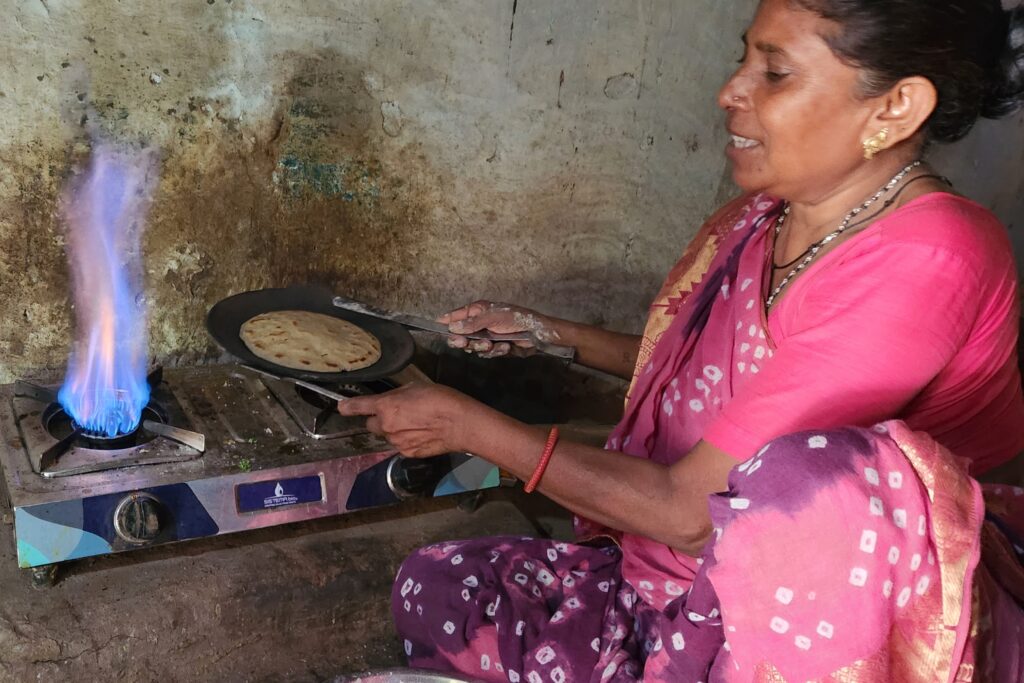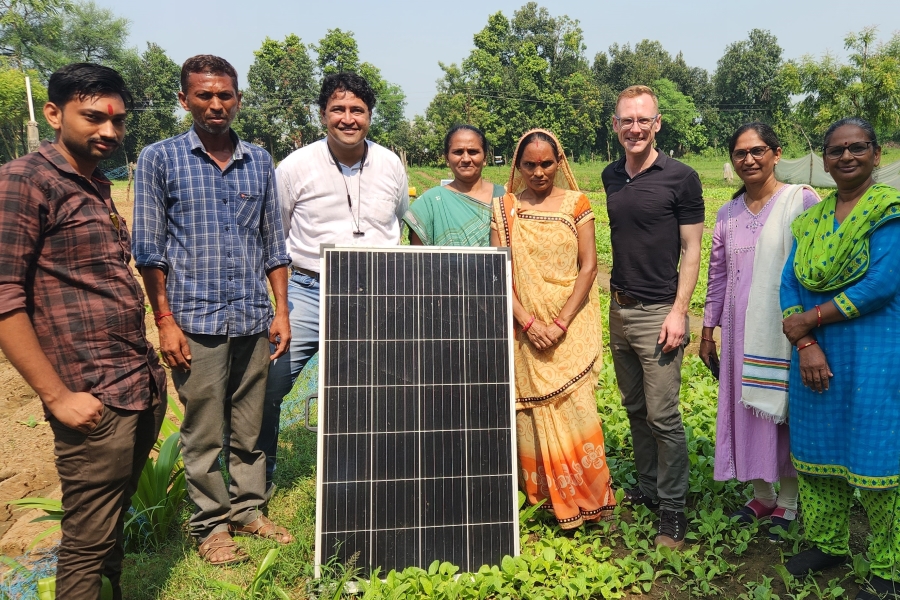SEWA building climate resilience of poor informal sector women workers in India
Coady Institute partner Self Employed Women’s Association (SEWA) of India is examining how climate shocks are affecting poor women who work in the informal sector and offering educational programming to prepare for and mitigate risks.
SEWA’s Manager Ni School (SMS) as a Centre for Innovation and Learning will focus on the community-based training of women leaders, women empowerment, capacity building, and strengthening knowledge through learning initiatives. The $50,000 project will support 8 climate educators, 40 climate and date entrepreneurs and raise climate change awareness in 5,100 households in three districts within the state of Gujarat, India.
“This climate school is not a building or premise but a concept or thought process that promotes deep awareness which is spread rapidly through informal gatherings and very few formal courses in SEWA’s buildings at district levels,” Kapilaben Vankar, President SEWA says.
The schools are not a traditional school taking place in a building.
“Every meeting spot or a shade tree where education on climate is given is a ‘climate school’,” Naimisha Joshi, Organizer, SEWA adds. “There is an urgent need for such dynamic knowledge proliferation that goes beyond the limitations of physical school/classrooms/buildings.”
The funding for the climate schools will come from ENGAGE! Women’s Empowerment and Active Citizenship a five-year initiative co-designed by Coady Institute and five partner-organizations in Ethiopia, India, Tanzania, Bangladesh, and Haiti. The climate schools align with Engage’s objectives of advancing gender equality and poverty reduction by enhancing women’s capacity to participate in the social and economic life of their communities. Global Affairs Canada contributed $9.8 million to Engage.
“The big motivation for this project is to, in the aftermath of Cyclone Biparjoy and seeing the effects on women’s lives and livelihoods, help the members and SEWA develop awareness and livelihood resilience to increasing climate shocks,” Eric Smith, Coady staff member and Engage Project Manager, says.
Cyclone Biparjoy made landfall in Gujarat, India on June 15, 2023, leaving behind a trail of destruction, and displacing 5,000+ SEWA members. The cyclone severely damaged more than 200 members’ homes, disrupted electricity and water supply in over 40 villages for periods extending to 12 days and washed away the fields of over 50,000 small and marginal farmers, leaving them in a debt even before the beginning of agriculture season. More than 55% of SEWA’s members are rural and agriculture is their primary occupation.

A SEWA member demonstrates the use of eco-friendly biogas for cooking in her kitchen. Biogas is one of the interventions the Climate School is piloting and implementing with SEWA members.
“Every meeting spot or a shade tree where education on climate is given is a ‘climate school’. There is an urgent need for such dynamic knowledge proliferation that goes beyond the limitations of physical school/classrooms/buildings.”

Niruben Gohil shows Coady and SEWA staff how she and her husband Rameshbhai have piloted climate adaptive technology in one of their fields – more than doubling their annual yield of hot peppers and reducing their expenses by using drip irrigation.
Over the past decade climate shocks have been becoming increasingly frequent and harsher. In the past 12 months, state of Gujarat has seen several bouts of unseasonal rains, extreme heat wave, two big cyclones, one flood and one drought-like dry spell.
These increasingly frequent climate shocks and the resulting devastating impacts on the lives and livelihoods of SEWA members have underlined the importance of building climate resilience of the poor women workers and their families to help them withstand these shocks and sustain their livelihood.
“On SEWA’s 50 years celebration our Founder Ela Bhatt said ‘The real celebration will be planning for next 50 years, so that SEWA celebrates 100 years! Our young members are equipped to adapt and mitigate climate crises,’” Reema Nanavaty, Sewa Director says. “We all unanimously resolved to launch ‘Cleaner Skies Campaign – Swacch Aakash’. Climate school will spearhead this effort. It is evident that there needs to be awareness, training and adoption framework that will drive the campaign.”
SMS will work with Coady Institute to design and develop the appropriate course curriculum and develop simple, appropriate, and participatory data collection, teaching, learning and measurement tools. The partnerships will strengthen the climate resilience course and build resilience of the community members, thereby strengthening the women empowerment goal with a focus on youth, an overall objective of the Engage. SMS may also offer this course to other Engage partners with support of Coady Institute.